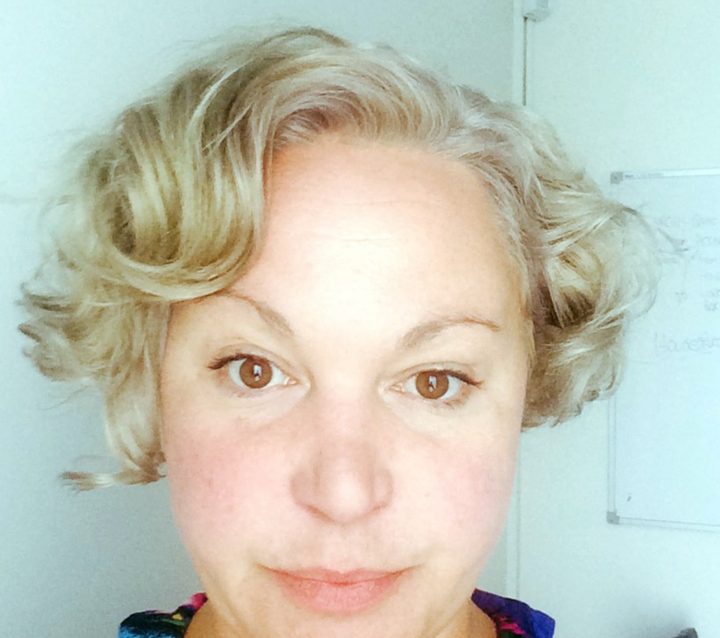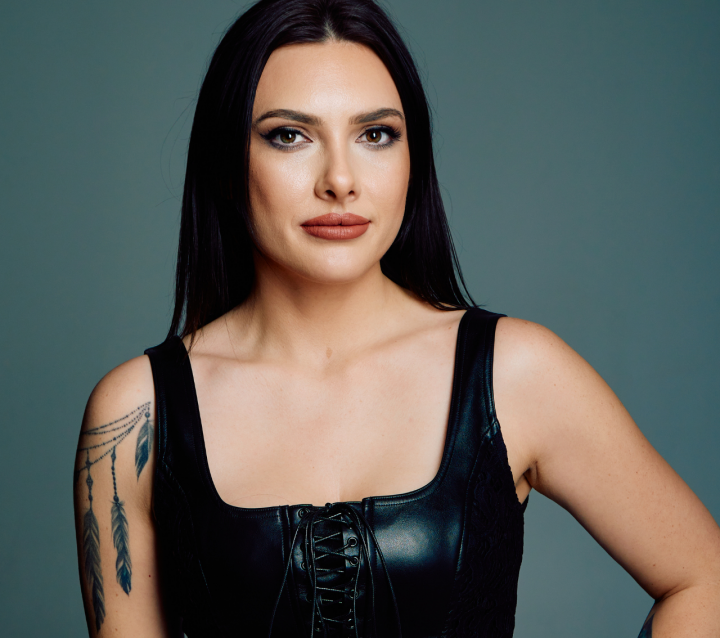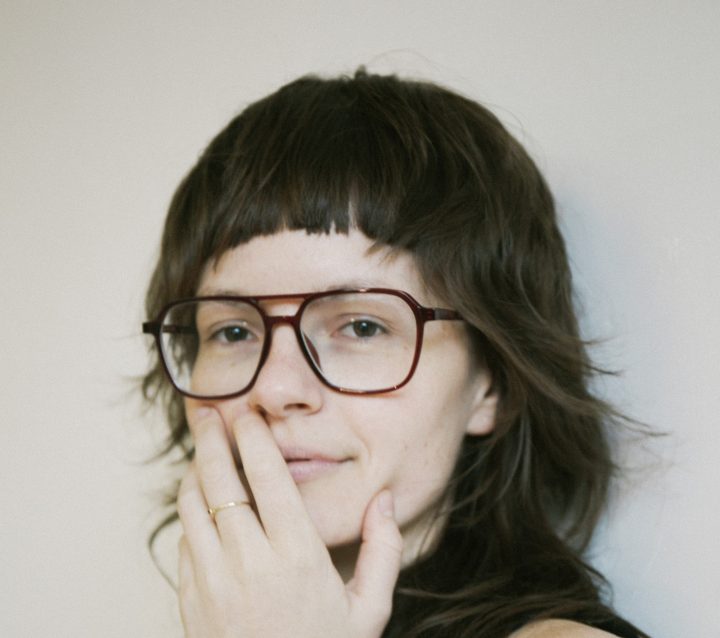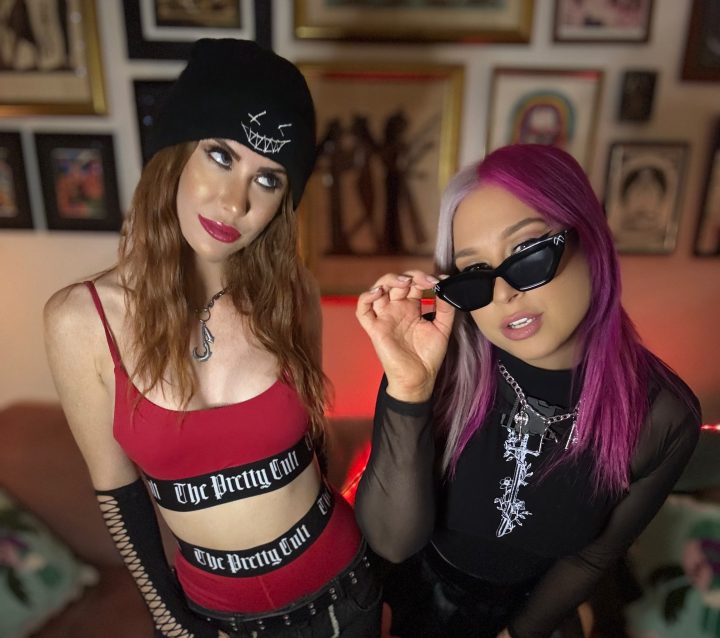
What is your role at Music Tasmania and how long have you been in the position for?
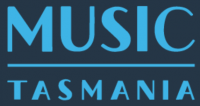
I’ve been the Chief Executive Officer since May 2015 (just over 2 years). Most of this time it’s just been me running the show, but we’ve recently hired an Industry Development Coordinator and a Creative Producer for projects, so it’s exciting to be part of a new team.
For those who are unfamiliar, tell us a bit about Music Tasmania, what you work on, who you work with, and what your goals are.
Music Tasmania is the peak industry body representing Tasmania’s music community and our mission is to develop, promote and advocate for Tasmanian music. We’re also part of the Australian Music Industry Network (AMIN), along with Music Victoria, Music NSW, WAM, Music ACT, QMusic and Music NT, which is such a valuable national support network, especially for smaller states like Tassie.
We work with a bunch of amazing people and organisations, ranging from musicians, festivals, music businesses, industry, non-profits, and governments, to achieve great outcomes for the music community. Music Tasmania is a tiny organisation so we really depend on collaborating and working with others who share our love of local music to make all the great things happen.
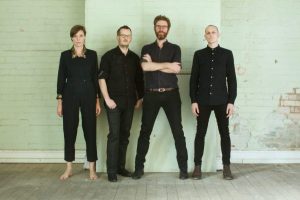 EWAH
EWAH
Describe a normal day in the life of Laura Harper.
There is no normal day! There’s no such thing as 9 to 5 in music, and the lines between your personal and professional life are pretty hazy. My job is only funded three days a week and I try to squeeze as much into those days as humanly possible. It’s tricky trying to juggle the critical, administrative demands on my time, like sourcing funding to be able to actually do things, while making sure that I’m taking care of our core business and the reason we exist: the music makers. I spend way too much time writing grant applications and not enough time going to gigs!
How did you get your start in the music industry – what is your story of how you got to where you are today?
I didn’t know what I wanted to do or ‘be’ following college, so I went to Art School, where I got to explore ideas, experiment with everything, and meet like-minded, creative people.
Following Art School, I worked in rent-paying jobs before talking my way into a role working for Arts Tasmania, the Tasmanian Government’s arts funding, policy and advice body. During this time I worked on the Amplified Festival, Tasmania’s biggest music industry festival, where I connected with some excellent people and worked on inspiring projects.
It was kind of a mix of dumb luck and good timing that I saw the Music Tasmania position advertised, just as I was finishing up a marketing stint for Ten Days on the Island, and decided to throw my hat in.
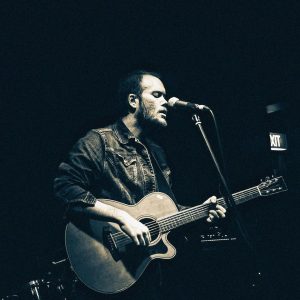 Seth Henderson
Seth Henderson
When I started at Music Tasmania, the organisation has just lost funding support from the State Government, and I was basically given a six month contract to fund my own job and make the organisation viable. It was a huge challenge and we were really fortunate to have lots of good-will and some financial support from APRA AMCOS during that time that was really critical to our survival.
Recently, I was at a gig and a musician came up to me and thanked me for ‘caring’, which meant a lot because I really do care, and It makes showing up for work easy because I love what I do and the people I work with.
Have you got any advice for people wanting to start a career in music and the arts?
Be nice to people: Be a good person who other people want to work with. This industry is really based on relationships and you never know where random encounters, conversations, or collaborations will lead.
Do good work: Show up, get back to people, and deliver beyond what they expect of you – don’t over promise…and when you fuck-up or fail, don’t be too hard on yourself. We’ve all been there.
Love what you do: You don’t go into music and the arts for the money, so you need to be passionate about it. Recently, I was at a gig and a musician came up to me and thanked me for ‘caring’, which meant a lot because I really do care, and It makes showing up for work easy because I love what I do and the people I work with.
Do you feel that higher education is necessary to establish a career within the Australian music industry?
Learning is important and we’re very lucky to be able to access so many different kinds of education in Australia. Is higher education going to help you be a better musician? Probably not. Is a commitment to learning going to make you a better person? Absolutely! Self-directed learning can take so many different forms including internships, mentorships, worshops and short-courses. Or maybe reading books, playing, making discoveries online, listening to people! Passion and practice I think are the most important things.
What tips would you give a young musician or artist trying to succeed in Australia? Is there a certain route they should take in order to be successful?
There is no golden ticket and success means different things for everyone. It used to mean fame and fortune, but I think that has completely changed and nowadays most people just want to earn a living doing what they love. All you can really do is believe in yourself and persevere, look after yourself and imagine the glass as half-full.
There’s this perception that young people are not coming to gigs and spend all their time on netflix and tinder – but I think that’s a bit of an unfair stereotype. We see young people being great makers and supporters of music, and a really key demographic for venues and festivals.
What issues do you feel the Australian music industry is currently facing and how do you think these could be changed and improved?
The main issue for the industry is really around value: How musicians can make a living from what they do, how audiences expect music for free, and why governments don’t recognise the cultural value of music and still expect it to be a commercial, money-making business?
The music market is really broken and I don’t know how to fix it in a way that supports artists to make music and have sustainable careers?
I think we also need to be mindful about the Australian music industry being a kind of monoculture and continue to work towards nurturing an inclusive music community that celebrates diversity. Some of the social issues around discrimination are being acknowledged and addressed at a policy/administrative level but we need to make sure that the conversation continues. You just need to read some of the horrible comments to understand we still have a big problem!
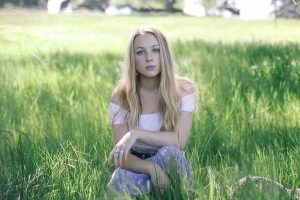 Kat Edwards, photo Tim Coad
Kat Edwards, photo Tim Coad
Do you see younger people coming to performances, or is this something that needs to happen more?
There’s this perception that young people are not coming to gigs and spend all their time on netflix and tinder – but I think that’s a bit of an unfair stereotype. We see young people being great makers and supporters of music, and a really key demographic for venues and festivals. I think there needs to be further research into understanding the needs and preferences of our audiences, including the youth audience, to make sure we know what they want.
What is the Tasmanian music community like compared with the rest of Australia in your experience?
When people talk about the Tasmanian music scene they often cite the isolation and freezing weather as the main influences on the music and musicians here, and that we have kind of a ‘DIY’ music community. In a sense this it true (even though we kind of roll our eyes at the ‘we-make-music-because-it’s-cold’ cliche). But it’s a really resilient and close-knit community where people support each other.
I think there’s also a keen sense of difference and an island-ness felt here, that’s a really unique and special part of the music culture: how we interact, and the kind of stories we tell. One of my ex-Board Members put it beautifully when he said: “We’re separate but still a part of the ocean, and we notice the ebb and flow, the currents, and the waves pushing us around more.”
Have you had to overcome any challenges or adversity in your career, and if so how did you approach them?
When I quit my Government job, over three years ago, it took a lot of courage – I didn’t have any idea what I was going to do, or how I’d pay the mortgage. But it was one of those ‘trust the universe’ moments that has really paid off – because I had to face my fear of failure and had absolutely no choice but to back myself and take a chance. For me, the biggest challenge in my career has been learning to be comfortable in myself and confident in my abilities, and this has taken time, experience, and other people believing in me. Even now though, I still have to shush my negative voices and try to not be so harsh on myself.
Have you had to develop any skills/personality traits that you didn’t realise you’d need?
Bouncing back from failure or disappointment can be tough and I’ve had to build-up my resilience and learn to take criticism in a positive and constructive way, which is not always easy! I’m not sure you ever know what skills you need until you need them, and I’ve had to adapt to the demands of each job and challenge. You kind of become a jill-of-all-trades by sheer necessity, or a wonder woman because you have to, by default of having to depend on yourself all the time.
Who are your role models in the industry whether they be international/Australia
I have a huge amount of admiration for women who have broken down industry barriers, asked questions, and challenged the stats quo. Woman with courage are huge role models.
I’m also just a massive music fan who’s inspired by songwriters and music every day, and I find myself listening to and admiring artists who I really connect with.
What advice would you give your 18yo self?
You don’t have to be perfect and that’s OK. In the iconic words of Absolutely Fabulous: Just do your best darling!
We’re kind of like the little engine that could and I’m incredibly proud that Music Tasmania can have such a big influence and impact.
What does 2017 and 2018 hold for you? Any exciting things that you can tell us about?
We have a massive last half of the year coming up, including a lunchtime Tassie party at BIGSOUND in September featuring some amazing Tassie music (to be announced). Plus, we are super excited about Game Changers, a series of events/happenings in Hobart this November that will develop and celebrate women in music.
Music Tasmania is hosting a music picnic event during Junction Arts Festival in Launceston, and we program a stage of local acts called Homebrewed at Falls Music and Arts Festival in Marion Bay. Oh, and we also curate the huge music program for the Taste of Tasmania.
We’re kind of like the little engine that could and I’m incredibly proud that Music Tasmania can have such a big influence and impact.
Top 3 Tassie artists you’re currently listening to?
Currently on rotation at home is the mesmerising EWAH Everything Fades to Blue, Seth Henderson and the Beautiful Chains awesome debut album, and Kat Edward’s beautiful EP Sunk. There is so much amazing Tassie music though, and a whole bunch of artists I love listening to – I’m completely spoilt for choice!
What’s your go-to karaoke song?
I don’t really DO karaoke… But I have been known to have a number of drunken family sing-a-longs to Dr. Hook, thanks to the influence of my father, who played NOTHING but the Dr. during my childhood. So, it would probably have to be the classic “Everyone’s Making It Big But Me”.
Sad, I know, but kinda ironic.
